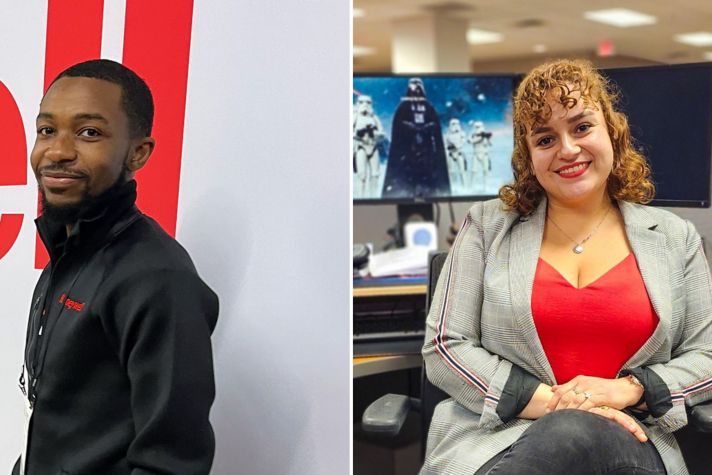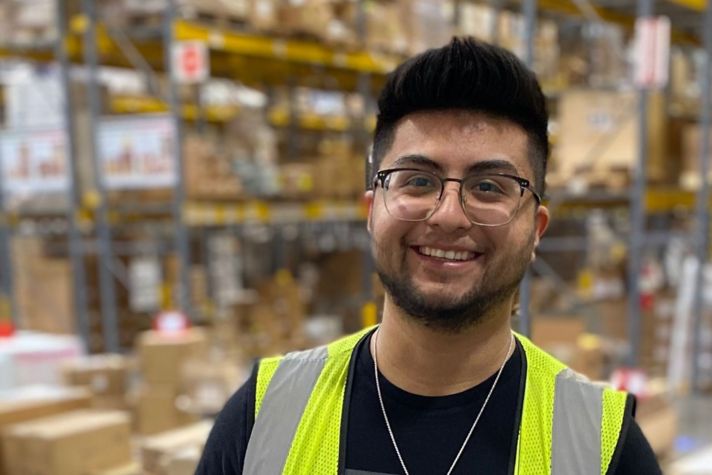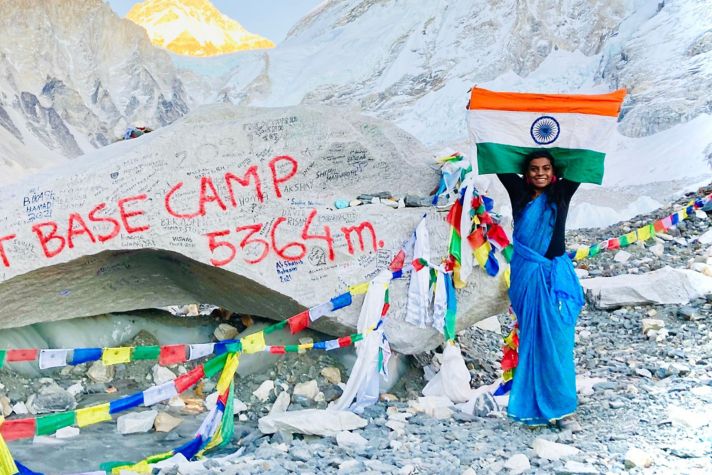-
Global
-
Africa
-
Asia Pacific
-
Europe
-
Latin America
-
Middle East
-
North America
- |
- BUSINESSES
- |
- Contact
- |
-
Global
-
Africa
-
Asia Pacific
-
Europe
-
Latin America
-
Middle East
-
North America
- |
- BUSINESSES
- |
- Contact
- |
You are browsing the product catalog for
You are viewing the overview and resources for
- News
- Why Veterans Make Great Leaders
Why Veterans Make Great Leaders
One of our leaders talks about how military service has shaped his life personally and professionally
Between 1987 and 2000, Ricky Freeman served in the US Marine Corps in various roles, including as an aviator and officer.
Currently, as the President of Defense and Space for Honeywell’s Aerospace business, Freeman said that his military experience directly shapes how he approaches his role.
“In the military, there’s something known as the fog of war, which is the reality that no matter how much and how long you train, that training will all get turned upside down when the first bullet is fired because you cannot predict what you do not know,” Freeman said. “War itself is uncertain, and that can be true in the business world, too.”
“Every day, there’s something new I did not anticipate, and the ability to operate comfortably in fast-paced, dynamic and uncertain environments is critical,” he added.
Left: A portrait of Freeman as a military academy student. Right: Freeman in 2020.
Who or what inspires you?
Growing up, I didn’t have a great deal of opportunity. For me, it was all about trying to find a path to live a life of value.
Early on, I locked onto the Tuskegee Airmen, the first Black aviators in US military history.
They inspired me in a very poignant sense. Here, you had the finest aviators this nation has ever produced, who flew to far-flung corners of the world and fought in wars in the most remote places on Earth to liberate people they never met while they were not free in their own country. Their sense of duty and patriotism inspires me to this day.
I’ve also always been inspired by listening to and watching great leaders: Gen. Colin Powell, former US Secretary of State and Chairman of the Joint Chiefs of Staff; Gen. Frank E. Peterson, the first African-American Marine Corps aviator and Marine Corps general; Vice Admiral Samuel Gravely, the first African-American in the US Navy to serve as a Flag Officer in the US Navy and first fleet commander; and Benjamin O. Davis Sr., the first African-American general in the US Armed Forces.
I’m also inspired by wounded and disabled veterans.
Seeing veterans return from war with grave injuries, both physically and mentally, yet they persevere in spite of enormous odds always made it clear to me that no matter where you come from and what you have endured, you can live a life of value.
For that reason, I am always inspired by those that have served this nation.
What advice would you give to veterans who are transitioning into a post-military career?
Veterans bring intrinsic value to the workplace that does not always translate on a resume. As such, veterans should spend quality time developing their resumes and communicating how their skillsets are relevant in a business environment.
It’s important that veterans spend shaping their experiences in the military into a corporate context because people interviewing them who haven’t served in the military may not understand.
I often tell veterans to describe their capabilities in the most directly applicable and relevant light because employers today are looking for people who bring innate leadership, character, courage and selflessness to the workplace. Those qualities are a given for people who have served in our armed forces.
Also, I tell veterans to use resources like military transitioning assistance programs, and to seek expertise in helping shape that transition. It can be nerve-wracking enough making that decision to leave military service, so you want to avail yourself of all the opportunities.
Why should employers hire veterans?
It is a privilege to hire veterans because I know I’m getting a person who will bring a high degree of discipline, capability and determination.
Another important trait that veterans bring to the workplace is selfless leadership. Serving in the military, you learn to be concerned with the success of others more than yourself. That ability to take care of your team is invaluable.
It is so important as a nation that we recognize the true value that veterans bring to our organizations.
The mindset of service, integrity, discipline, work ethic, commitment, and the ability to improvise, adapt and overcome through many challenges – these are qualities that are critical to success.
How does inclusion power innovation?
Innovation, in my mind, has always spawned from diverse organizations with people who feel like they’re part of the team.
As such, it is not just diversity that drives innovation, which is critical, but it’s also a function of inclusion and equity.
The recipe for success in any business is a team that is comprised of diverse people, where that diversity is embraced, and in which people have a voice at the table and their voice is taken seriously.
When people feel like they can bring their “whole self” to the job, it is the breeding ground for innovation, because each person believes they are valued and a part of something.
Creating that type of work environment takes leadership and deliberate action, but the results are self-evident. I encourage our leaders to deliberately seek to add veterans’ voices to that diverse and inclusive ecosystem.
We are a better company with veterans on our teams, and with veterans leading our teams.
Copyright © 2025 Honeywell International Inc.




